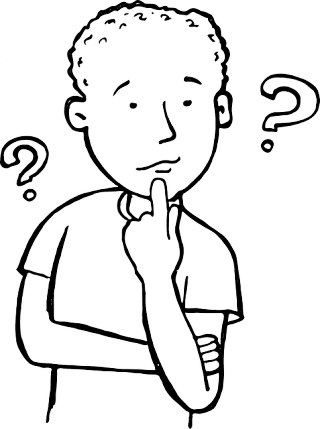Environment
What Should I Look For in a Therapist?
Somewhere safe with somebody good
Posted February 18, 2015

A few weeks ago, I was working in a therapy session with a client of mine*, a young woman who was describing how alienated she feels in her life—with her husband, her job, her friends, and even with people she encounters on the freeway or in the grocery store line. As we explored this feeling, she went on to describe her longing to feel welcomed and at home somewhere, anywhere, in her life. We traced this longing back to her experiences in early life and, soon, a picture began to come together. The only child of working parents, she was a “latch key” kid who let herself in the house after school several hours before her parents arrived at home each day. Her parents were decent people but seemed to lack the emotional openness that this naturally sensitive child really needed. I suggested that perhaps this was one of the reasons that she had come to see me, in search of someone who would be open to listening to her and ready to receive her just as she is.
While I was thinking together with this client, a phrase kept coming to my mind. I never said the phrase but it informed my thoughts and helped me decide what to say. I had been reading a novel by Jan Karon, the most recent in her Mitford series about an episcopal priest, Father Tim, and his wife, Cynthia, a writer of children’s books. Father Tim had been a bachelor into his sixties when Cynthia moved in next store and their romance and relationship took flight. The title of the book is a description of their relationship and the phrase that kept running through my mind: Somewhere Safe with Somebody Good.
As I turned this association over in my mind, I realized that “somewhere safe with somebody good” also describes what a therapist should provide. It is the basic foundation, the necessary framework, and the kind of culture which good therapy should have. It might even be a helpful question for someone seeking therapy to ask themselves during those first few consultation sessions: do I feel that I am somewhere safe with somebody good?
For me, somewhere safe has two meanings when it comes to therapy. The first has to do with the physical environment and conditions. A safe therapy place is a place that is quiet, free from distractions and intrusions. The therapist starts and ends on time, the phone is turned off, the white noise machine is turned on. Confidentiality and privacy are maintained and honored. The framework is predictable—the fee, the schedule, the cancellation and vacation policies, and so on. The therapist keeps his personal business to himself. A safe haven needs boundaries, and these are some of the key physical boundaries that a good therapist provides.
The second meaning of somewhere safe has to do with the attitude of the therapist. An emotionally safe place is a place in which the client is free to share his or her thoughts and feelings with a listener who does not respond by rejecting or harshly criticizing them, or by sitting in moral judgment. The attitude of the therapist is one of empathy, curiosity, and a desire to understand. It is also an attitude of seriousness. It is crucial for the therapist to cultivate a real working environment in the therapy relationship, one in which the client’s life is taken seriously. This provides what Donald Winnicott called a “holding environment” and goes a long way to making the therapeutic relationship a safe place.

When it comes to looking for a therapist, somebody good has layers of meaning, too. My clients sometimes say to me, “You are good at what you do.” This is the first meaning of the phrase somebody good. A good therapist is someone who has a good training, who has learned the skills of their trade and the art of their craft. They come highly recommended and are respected by their peers and other clients.
But there are deeper qualities that can help you tell whether a therapist is really good. You should be able to tell if he or she is a good listener, to be sure, but look for more than that. Good therapists listen in a particular way: they think as they go, making sense of complicated dynamics to get to the underlying meaning. Their goodness is rooted in three qualities that make a big difference; they have tact, courage, and a commitment to the truth. This means that they are able to put words to challenging, sometimes painful realities in a way that encourages the client to remain open to listening and learning more about themselves. If you find this set of qualities in a therapist, you can have confidence that you are in capable hands.
Just like my patient, we all long to have a place in life that is safe where we can be in relationship with someone who is good. Some of us may have such a place with such a person and, if we do, we are fortunate indeed. For me, that phrase describes what children need from their parents, and what a quality friendship or love relationship can be. It also describes what good therapy looks like and defines what it can and should provide.
*The clinical vignette above is fictionalized to protect client privacy and confidentiality.
Copyright 2015 Jennifer Kunst, Ph.D.
Like it! Share it!
Follow me on Twitter @CouchWisdom
This is just a taste of Jennifer's model for personal growth. To read more check out: Wisdom from the Couch: Knowing and Growing Yourself from the Inside Out.


